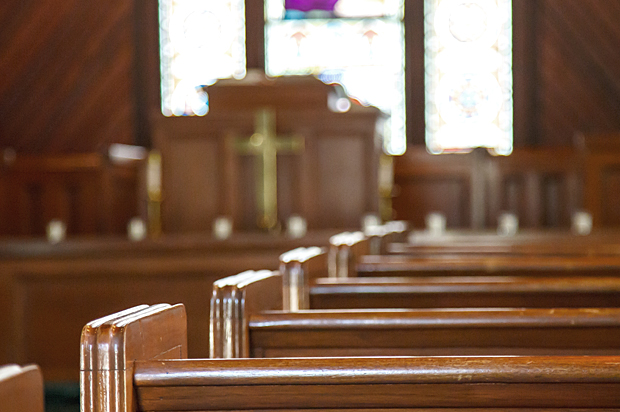Last week, the Public Religion Research Institute (PRRI) put out a new report on religion in America that measured a truly remarkable shift: For the first time, almost certainly in the country’s history, people who identify as white Christians are a minority of Americans. Four out of every five Americans were self-described white Christians in 1976, but now that group only constitutes 43 percent of the U.S. population.
There are a lot of reasons for this shift, study author Robert P. Jones, who heads PRRI and is the author of “The End of White Christian America,” explained to Salon in an interview. To a large extent, Jones said, it’s the trend of “young, white people leaving Christian churches that is driving up the number of religiously unaffiliated Americans.”
This reflects, he added, “a culture clash between particularly conservative white churches and denominations and younger Americans” over issues like science, particularly climate change and evolution, and especially the rights of LGBT people.
It’s a battle that goes a long way towards explaining the “Nashville statement,” released last month by the Council on Biblical Manhood and Womanhood. While the statement includes some language criticizing straight people who fail to practice “chastity outside of marriage,” by and large it is meant as an attack on LGBT Americans, suggesting, for instance, that no good Christians can “approve of homosexual immorality or transgenderism.”
“The younger generation, Americans under the age of 30 — more than eight in 10 of them support same-sex marriage,” Jones said, adding that the issue has become “a litmus test issue for many millennials in the country.”
“It’s not just that conservative white Christians have lost this argument with a broader liberal culture,” he noted. “It’s that they’ve lost it with their own kids and grandchildren.”
Statistics seem to bear this out. A slim majority of young white evangelicals now support same-sex marriage, while older generations of white evangelicals overwhelmingly oppose it. That difference doesn’t even take into account the huge numbers of young people who were raised in evangelical denominations and then left their churches, often because they disapprove of religious homophobia.
These trends lead Jones to believe that the Nashville statement was not really aimed at the larger American culture. Rather, it was an attempt by older, more conservative evangelicals to “reassert a view that has certainly lost its footing” with their own children and grandchildren. This is why, he speculated, the language is less “fire and brimstone” in nature than similar documents in the past.
A recent Washington Post op-ed by Albert Mohler, president of the Southern Baptist Theological Seminary, also suggests that the Nashville statement is an effort to sell the younger generation on accepting homophobia by soft-pedaling the hate.
“In releasing the Nashville Statement, we in fact are acting out of love and concern for people who are increasingly confused about what God has clarified in Holy Scripture,” Mohler wrote. (“Confused” is conservative Christian-speak for gay, bisexual or transgender — identities that the Nashville statement directly denies exist.)
Mohler went on to insist that the document was simply an effort to clarify and build on a view that marriage is “a covenantal, sexual, procreative, lifelong union of one man and one woman” and that “[c]hastity outside of marriage and fidelity within marriage are affirmed.”
This “love the sinner, hate the sin” spin was a hard sell before, and in the age of Donald Trump, it’s downright laughable. Not only did white evangelicals vote for Trump, but they voted for him in even greater numbers than they had for any other Republican before him — giving Trump even more support than they gave George W. Bush, who is one of their own. The more churchy the white evangelical, the more likely he or she is to support Trump. Many of the signatories of the Nashville statement (though not Mohler) also publicly lent their support to Trump. Signatory James Dobson even justified his choice by saying that Trump “appears to be tender to things of the Spirit,” which can only be described as a ludicrous claim, whether one is religious or not.
Trump committed adultery during his first two marriages and during his current marriage, has bragged on tape about apparently assaulting women. When asked about forgiveness during a Christian-oriented campaign event designed to make him look like a believer, Trump made clear that he had never asked God for forgiveness for these or any other sins and seemed confused about why he would have needed to.
The white evangelical support for Trump, coupled with the continued denunciation of LGBT people, makes it clear this is not and never was about morality, sexual or otherwise. Instead, “morality” is a fig leaf for the true agenda of the Christian right, which is asserting a strict social hierarchy based on gender.
The same-sex marriage question is a stand-in issue, Jones argued, for “a whole worldview” that is “a kind of patriarchal view of the family, with the father head of the household and the mother staying home.”
“I think that’s why this fight is as visceral as it is,” he added.
Trump may be an unrepentant sinner, but he is a supporter of this patriarchal worldview, where straight men are in charge, women are quiet and submissive and people who fall outside these old-school heterosexual norms are marginalized. Voting for him was an obvious attempt by white evangelicals to impose this worldview on others, including (and perhaps especially) their own children, who are starting to ask hard questions about a moral order based on hierarchy and rigid gender roles instead of one built on empathy and kindness.

